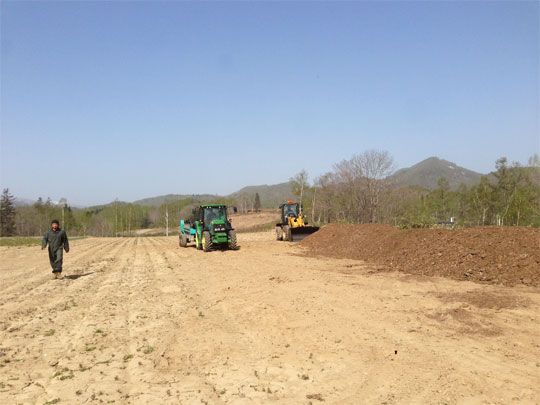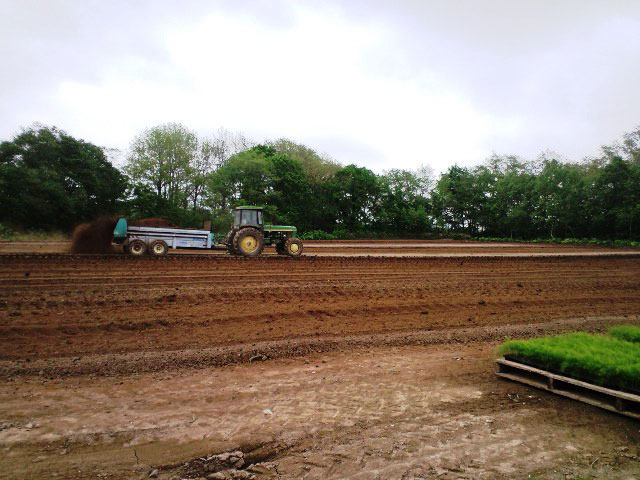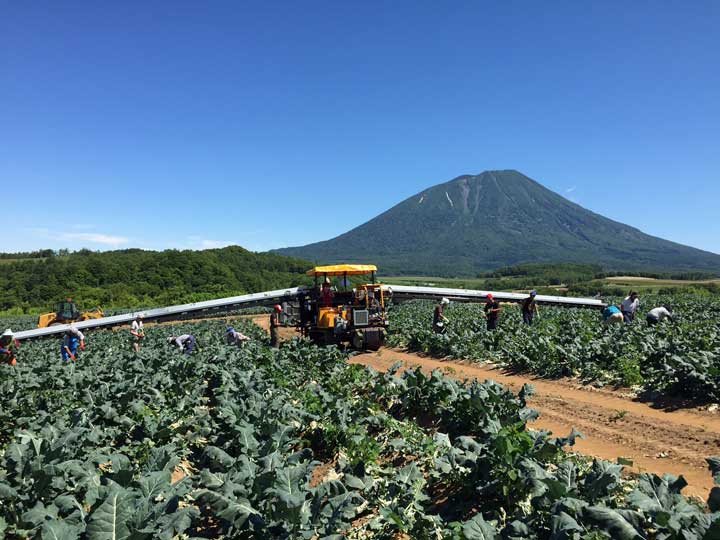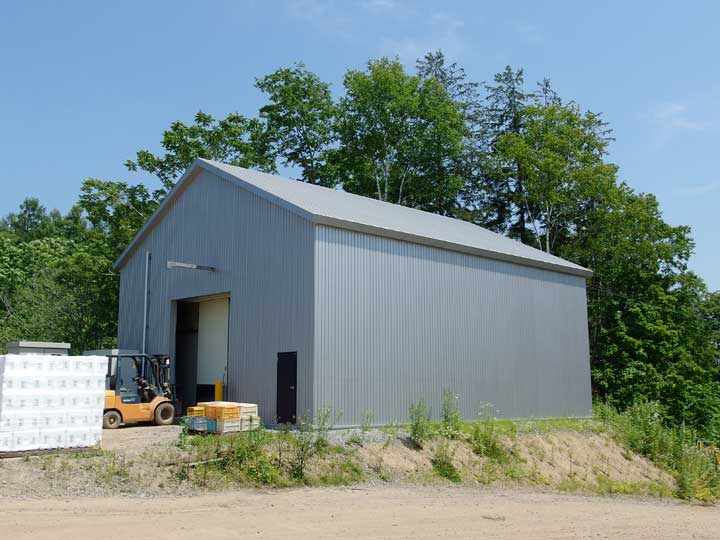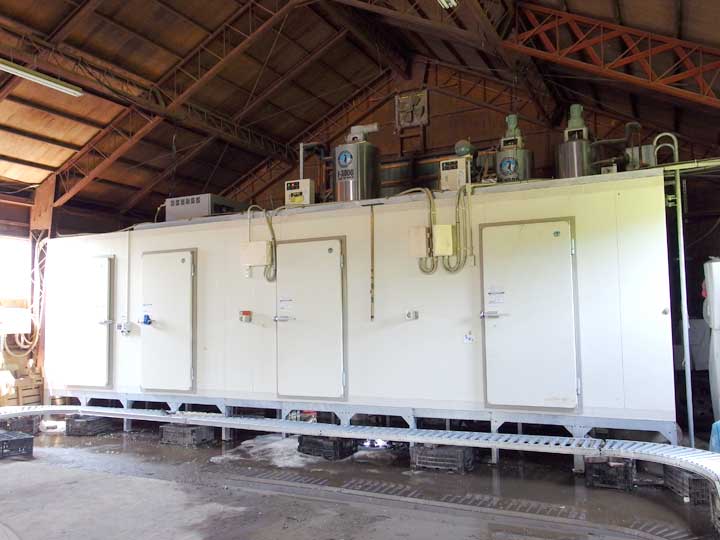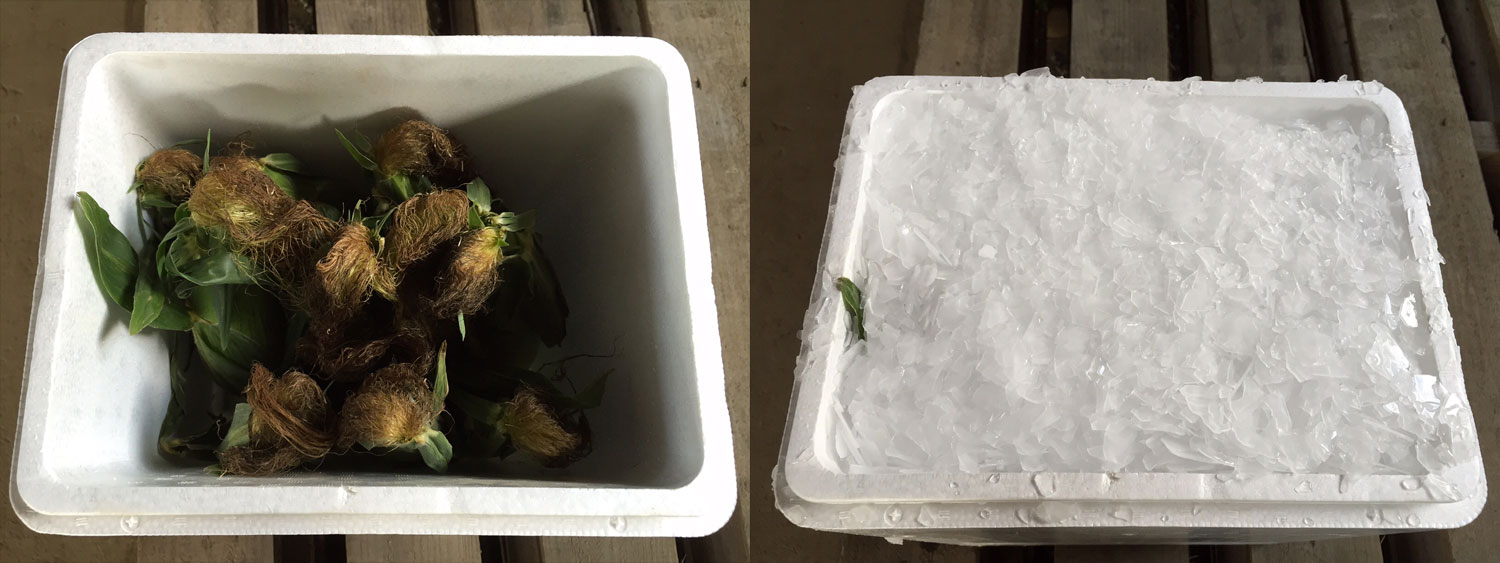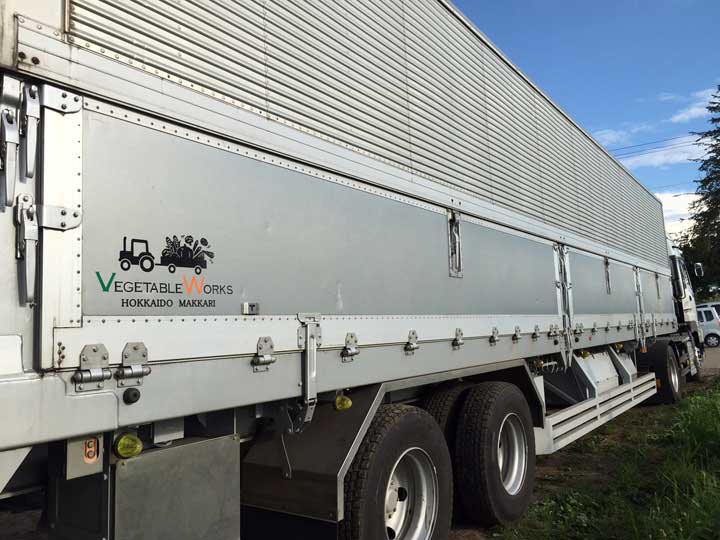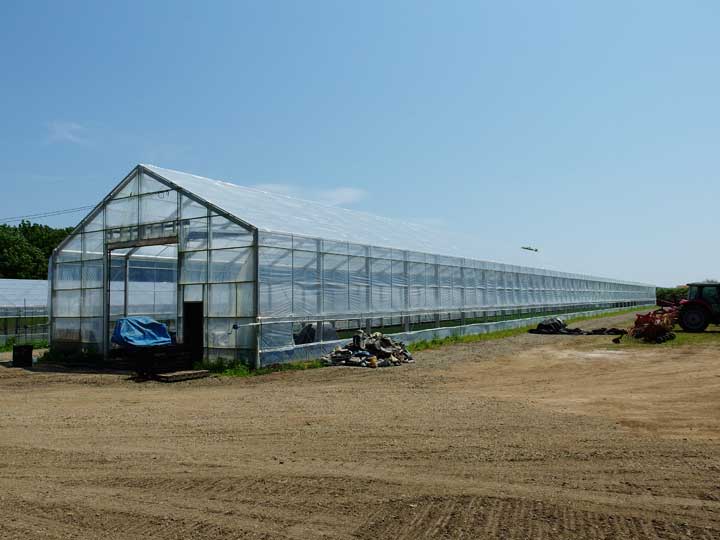
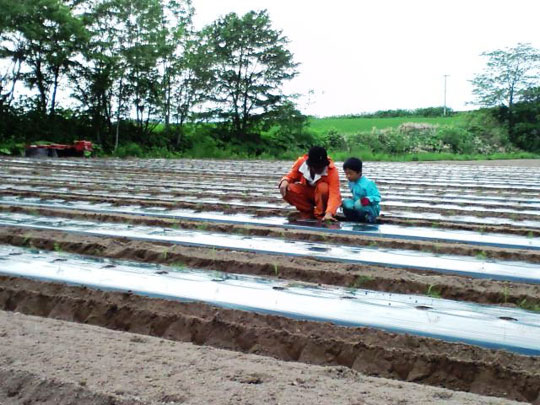
We, the Vegetable Works, grow vegetables using reduced pesticides and reduced chemical fertilisers. What does “reduced pesticides/chemical fertilisers” exactly mean, then? In fact, these terms are no longer used due to their ambiguities, but the products grown in such a manner are now labelled as "special cultivated farm products". As a standard condition set by the government, the special cultivated farm products must be grown with less than 50% in the number of reduction-targeted pesticides usages and chemical fertilisers with less than 50% component amount of nitrogen compared to the practice level in the production area. The products are also required to be accredited by an accreditation body. In accordance with this standard, the Vegetable Works cultivates vegetables based on the "Display Guidelines on Special Cultivated Agricultural Products".
Some of you may feel that "No Pesticide" or "Organic" sounds just better than others when purchasing vegetables. The Vegetable Works, however, does use pesticides. Just like people catch a cold, vegetables in the field can get sick. Once some of them get sick, there is a risk that the entire field gets sick and spoiled.
The vegetables we grow are delicious raw for us people, so they should be many times tastier than weeds for insects, too – sometimes we see 30 caterpillars gathering and munching on one broccoli. While pesticides and chemical fertilisers can be harmful when used too much, the Vegetable Works grows our vegetables using them less than half amount of the national standard for prevention of infectious disease.
About Display Guidelines on Special Cultivated Agricultural Products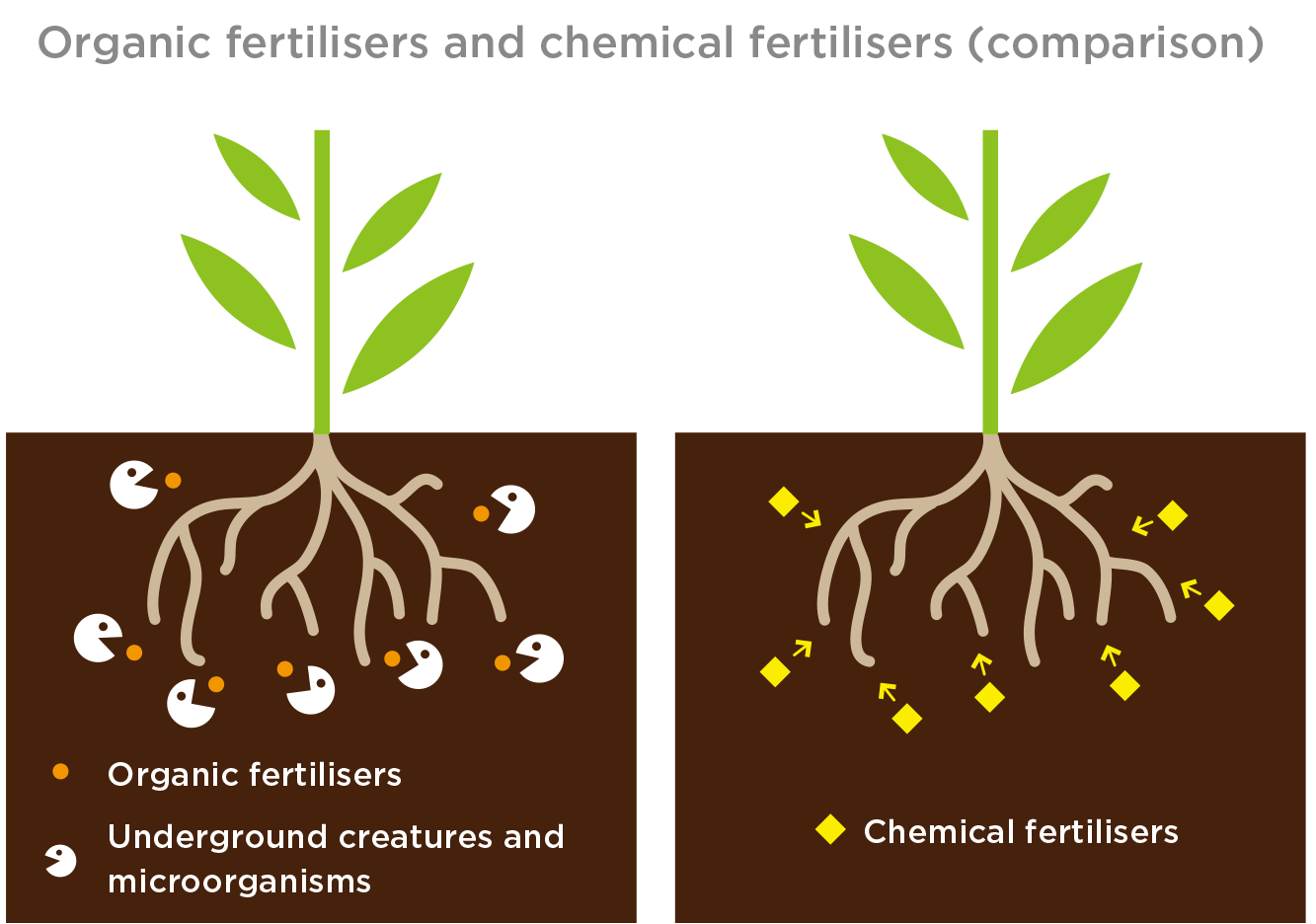
Here are some more facts about "reduced chemical fertiliser" mentioned in the previous section.
There are two kinds of fertilisers - organic and chemical. Organic fertilisers are derived from natural materials such as oil residue, fish residue, poultry manure and so on. On the other hand, chemical fertilisers refer to those produced by a chemical method.
Chemical fertilisers are very convenient in raising vegetables. When plants grew poorly, applying additional chemical fertilisers would solve the problem and make the plants grow big quickly. Chemical fertilisers are indeed a great help for farmers. Comparing to other countries, the proportion of using chemical fertilisers in Japan is high. Japanese farmers have been using them all over the country so that they could harvest more vegetables in a small field in a limited land. Chemical fertilisers are not all that bad but convenient. Yet, they also have unfavourable influences on the field and people.
Primarily and ideally, field crops should grow up together with microorganisms in the soil. Depending solely on chemical fertilisers would reduce microorganisms and destabilise the soil condition. When microorganisms decreased, pathogenic bacteria would increase and cause crop diseases. More chemical fertilisers would be used in an effort to manage the damage, and then more microorganisms would die – a damage control would turn into a vicious circle.
In the case of using organic fertilisers, while the fertilisers themselves do not develop to be nutritional ingredients of vegetables, they are good feed for underground creatures and microorganisms when spread on the field. The fed creatures would actively move around in the soil and the organic fertilisers eaten by them would be decomposed and transformed into inorganic matter which would become a nutrient of vegetables. The crops cultivated in the field with organic fertilisers would be protected by many microorganisms and grow into healthy vegetables which could ward off diseases. It is also said that using organic fertilisers raise the produce more aromatic and tasty than when using only chemical fertilisers.
Having said that, organic fertilisers are slow-acting agents. At the Vegetable Works, we give plenty of poultry manure to every field every year. All the effort could be wasted, however, should the effect of the compost spread in spring only so slowly show in the end of the harvest season. That is the reason we use supporting chemical fertilisers in a proper balance with organic fertilisers so we can carry on making good soil.
